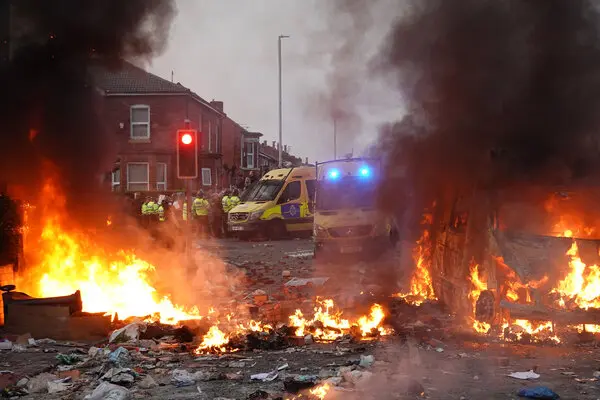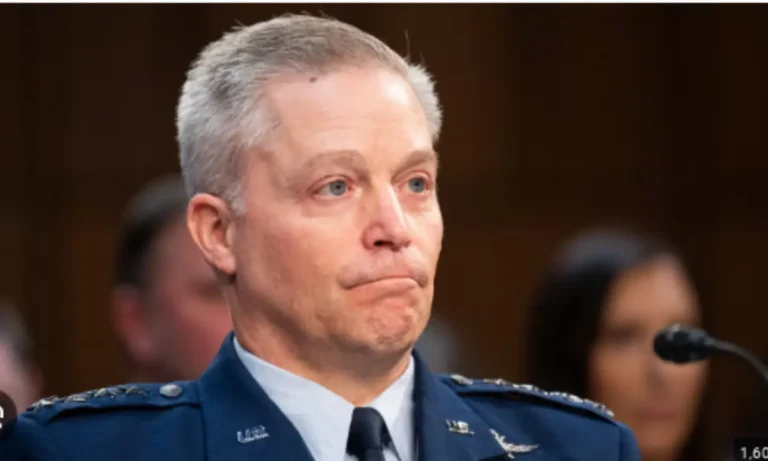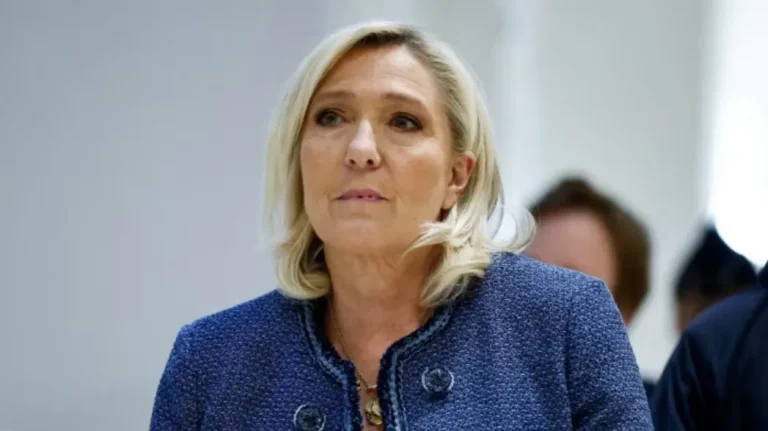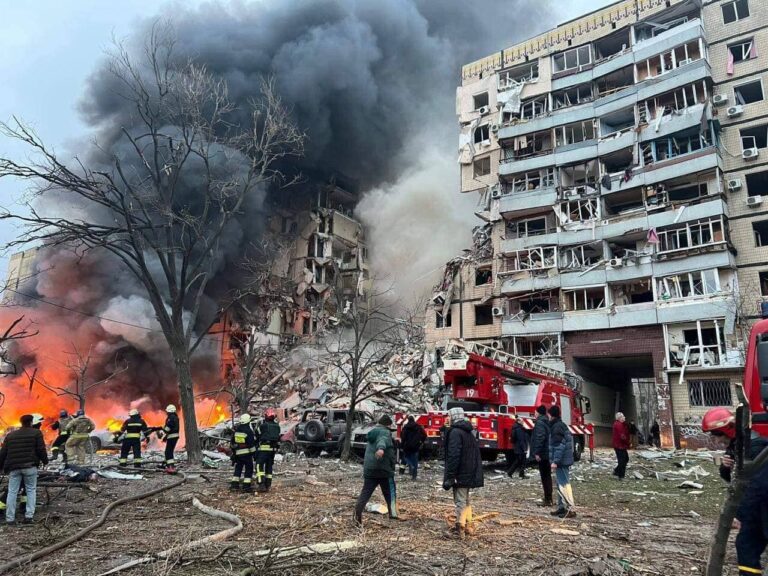
Violent far-right riots have erupted in the northeast English city of Sunderland amid a string of anti-immigrant protests following the killing of three children at a dance class earlier this week.
Northumbria Police Chief Superintendent Helena Barron said officers on faced “serious and sustained levels of violence” after several hundred people rampaged in Sunderland’s city centre, attacking police and setting fire to at least one car and a building next to a police office.
Eight people were arrested following hours of what Barron described as “utterly deplorable” disturbances. Three officers required hospital treatment and two remained in hospital early on Saturday.
Images shared on social media showed balaclava-clad youths throwing bricks as fireworks and flares were let off.
“The shocking scenes we have witnessed in Sunderland this evening are completely unacceptable,” Barron said, adding the “disorder, violence and damage” seen “will not be tolerated”.
“A full investigation is now under way to identify anyone else responsible”, she added.
The disorder came after two nights of unrest in several English towns and cities in the wake of the stabbing in Southport of the three children – Alice Dasilva Aguiar, nine; Elsie Dot Stancombe, seven; and Bebe King, six – at a Taylor Swift-inspired summer holiday dance class.
Online misinformation attributed the killings to a Muslim immigrant. The alleged perpetrator was later identified by a judge as 17-year-old Axel Rudakubana, a Christian born in the United Kingdom to Rwandan parents.
Police have said the case is not being treated as terror-related but have not revealed a motive.
Northumbria Police and Crime Commissioner Susan Dungworth on Saturday condemned the violence as “inexcusable criminality”.
“Violence, looting, vandalism — all this is not protesting, it’s criminal behaviour,” she said.
“It’s also not mourning the loss of innocent children in Southport. The families of those victims have not been given a second thought — they have been used, sickeningly, to promote the extreme agenda of those causing trouble.”
In Liverpool dozens of residents, including an old lady carrying a placard that read “nans against Nazis”, gathered to protect a mosque from a small group of far-right thugs. Police kept the crowds apart.
Across the UK, police are expecting protests in many towns and cities. According to social media posts monitored by anti-extremism campaign group Hope not Hate, rallies are planned in more than 30 locations in England and Wales until Sunday.
This follows several nights of violence sparked by a mass stabbing in Southport on Monday, in which three girls were killed and eight other children and two adults were injured.
Kim McGuinness, mayor of the North-East, wrote on X: “I’m appalled by scenes from Sunderland. Make no mistake, if your response to tragedy is to use it to commit violence, to abuse others, attack the police and damage property you stand for nothing except thuggery. It’s not protest. It’s crime and disorder.”
Home Office minister Lord David Hanson on Friday sought to deter people from participating in violent unrest, warning they must “be prepared to face the full force of the law on this criminal activity”.
Scores of arrests have been made across England this week after violence broke out at protests, including more than 100 people detained by police at a rally outside Downing Street.
The demonstrations this week have involved protesters bearing anti-immigration messages, including “Enough is enough” and “Stop the boats”.
That protest is expected to attract a counterdemonstration and to coincide with two unrelated rallies on the Gaza conflict and transgender issues, further complicating policing operations.
Plans are also being circulated on social media for demonstrations in London, Liverpool, Leeds, Middlesbrough and a number of other northern towns and cities.
London’s Metropolitan police said it had plans in place in advance of demonstrations this weekend, including meeting with leaders from the Muslim community and visiting local mosques.


